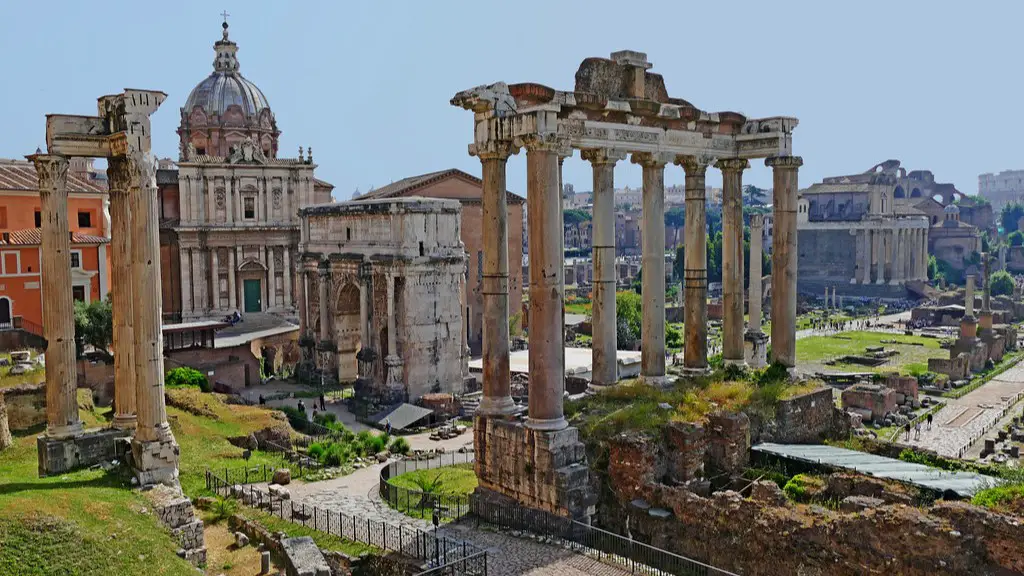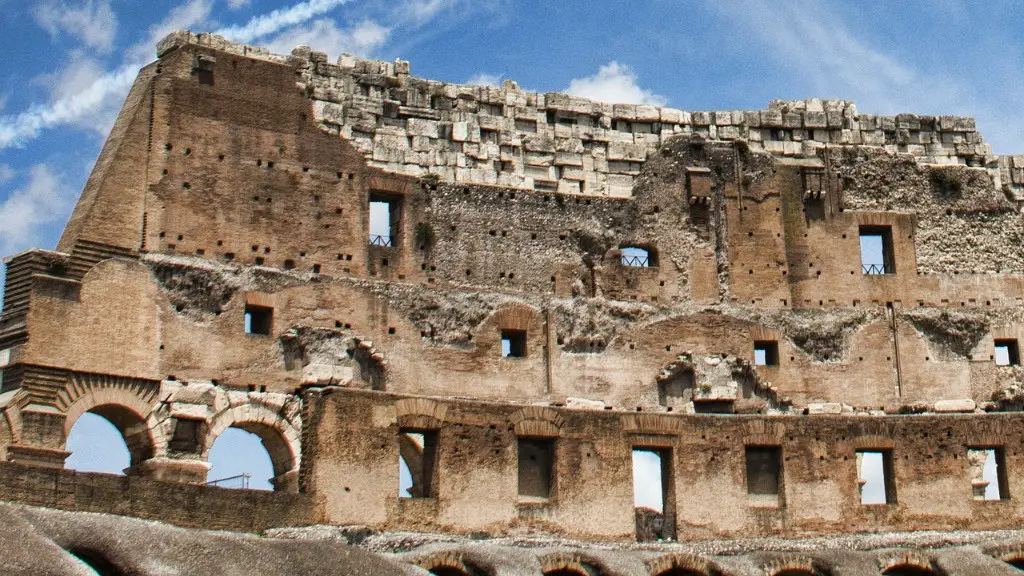Origin of Slaves in Ancient Rome
Ancient Rome was a patriarchal society, where the man of the family was the head of the household and had the primary job of providing financial support. For poor and wealthy alike, the man was the provider who, in most cases, reported to the Senate or Emperor in some form of service. As Rome grew, so did its need for labor and as a result, rich Roman families began to own slaves.
At first, owning slaves was a sign of status. It meant that one could afford to not just take care of their own family, but also to pay for labor to do domestic jobs, such as cooking and cleaning, or laborious tasks such as building or farming. It was also possible for a man to rent out his slaves to other households, perhaps for a salary or to share the profits from their production.
For wealthy families, owning slaves was a way to maintain large landholdings and villas. Many of these slaves were prisoners of war, or individuals who had been sold into slavery by their own people or from other countries or regions. It is clear that without slavery, wealthy Romans would not have been able to maintain their lifestyle and property, as they would have been unable hire the necessary workers.
Responsibility of the Male Slaves
The responsibilities of male slaves in Ancient Rome varied greatly depending on their value, age and the wealth of their master. The slaves that were of more value were given more freedom to exercise their basic rights. This was as a result of their skilled labor and expertise, which was useful to the masters in a variety of ways, both in the home and on the land.
More often than not, male slaves were asked to do the most difficult and physically demanding tasks – the hauling of heavy objects, the manual labor associated with farming, and the operation of the household. While it could be a hard life for slaves, for many it was the only life they knew, and it was their duty to obey and serve their masters.
Benefits of the Specialized Job
Some slaves worked in specialized jobs such as physicians, teachers, artists, and engineers. For example, doctors used their knowledge to help the sick and wounded, while teachers learned to pass on valuable knowledge and skills to their students. Despite the oppression they experienced, some slaves also found independence and purpose in their work.
Many slaves were also artists, performing music or painting in the private homes of their wealthy masters. This allowed them to express their creative abilities and passions, and subtlety influence the culture of the time. For instance, through paintings, music, or poetry, the slaves of Rome left their mark in the cultural landscape of the society.
Religious Rites & Duties
Religion was an important part of everyday life in Ancient Rome, and many slaves were expected to perform religious rites or duties on behalf of their masters. These tasks could include taking part in religious festivals, offering sacrifices, singing hymns, and even serving as seers or priests.
Most of these jobs were performed by the slaves in private, allowing them to quietly express themselves and finding a measure of solace in religious activities. Given that slaves had no rights in Roman law, taking part in religious activities was one way in which they could gain some satisfaction in their plight.
Impact on Mankind
The role of slaves in Ancient Rome was a key component in the development of the Roman Empire. By providing a steady stream of labor for the wealthy elite, and cultural and spiritual offerings for the masses, slavery helped to strengthen Roman wealth and power. While the lives of slaves were harsh and cruel, their work had a profound lasting impact on Roman culture, and influenced the development of later civilizations all over the world.
Discussion of Abolition in Rome
Although slavery was widespread in Roman society and was a key component in their economy, some famous individuals, such as Cicero, argued for its abolition. He believed that the practice was wrong morally, and went against many of the values of Roman law.
Cicero argued that slavery only caused strife in the empire, and led to further economic and social inequality. However, his opinion was not universally accepted, and the practice endured in Rome until it was abolished by Emperor Claudius in the 1st century CE. Despite claims of morality by Cicero, the primary reason for the abolition of slavery in Rome was due to changes in the economy and the lack of a need for slaves.
Slaves’ Rights and Privileges
Despite the brutal nature of the practice, slavery in ancient Rome was a regulated system and slaves had the right to certain privileges. To begin with, slaves were legally allowed to marry so long as their masters approved, and any children born to slaves would be considered free.
Slaves were also allowed certain rights with regards to their property. Any objects or belongings of a slave were legally owned by them, and if they died, their property was passed on to their family or close friends. This small measure of protection was vital for those in the servitude of their master.
Types of Punishment for Slaves
The punishment of slaves in Ancient Rome was severe. If a slave disobeyed, or tried to escape, they would be executed, crucified or beaten harshly. Other punishments included forcing the slave to wear humiliating and degrading clothing, brand them with a tattoo, or send them to work in the mines.
These punishments were intended to deter slaves from attempting to flee, and to establish a pecking order in which the slaves knew to obey their allotted task. This was normal in Ancient Rome, and it would take centuries before the cruelty and unfair treatment of slaves would become universally denounced.
Social Status of Slaves
The social status of slaves was well below that of their masters, and they were forced to live in segregated conditions with limited opportunities. Slaves were not allowed to own property, vote or serve in the military, and were further discriminated against by being excluded from important social occasions and events.
While some slaves were allowed a degree of freedom in their lives, the majority had few chances for escape or improvement. Slaves were thought of as animals, to be bought, sold, and worked for profit. They were not however treated with uniform brutality, and some masters were known to show lenience or kindness to their slaves.
Religious Aspect of Slavery
In Ancient Rome, slaves were a source of labor and power, but they were also used in a much more subtle way: religious rituals. Slaves were used in rituals to invoke Roman gods, to preside over sacrifices, and to bless important events, such as victory battles or official public announcements.
Their presence allowed for a stronger bond between the gods, the emperor, and the people. In a way, slaves were seen as an extension of the gods, a link between the spiritual realm and the material realm. This elevated the status of slaves and gave them a sense of spiritual power and importance.


